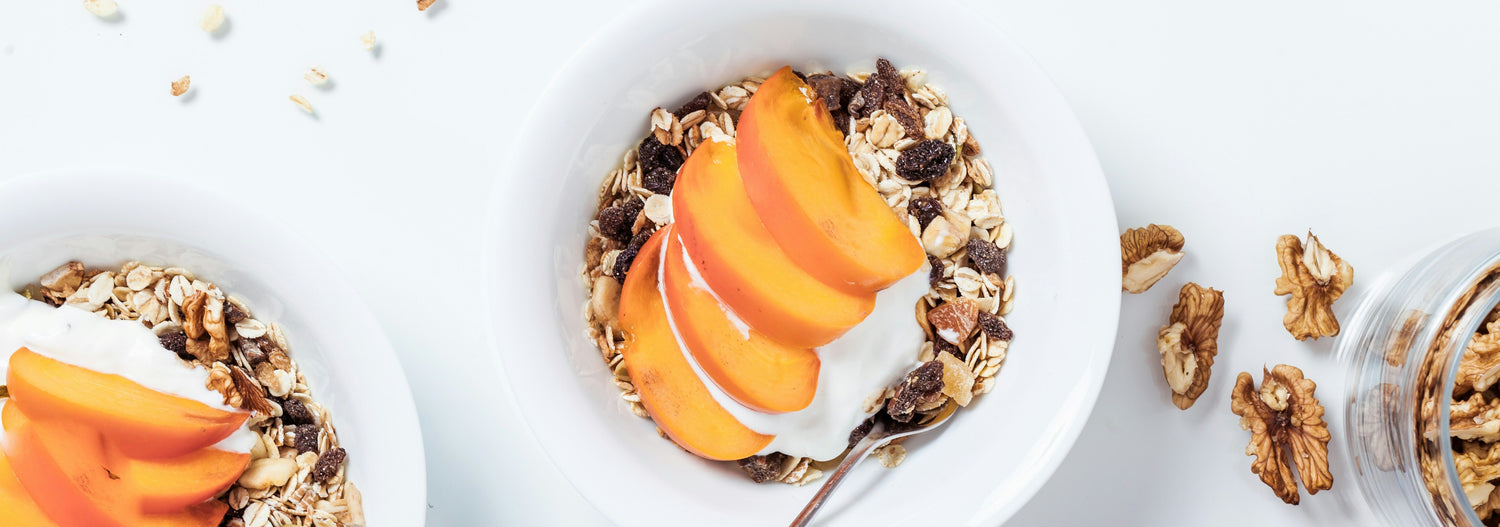
Why You Need to Power Up Your Health With Fiber
Fiber might not be the most glamorous nutrient, but it's one of the most important for our overall health. Often overlooked, fiber plays a key role in digestion, but its benefits extend far beyond your digestive system.
What is Fiber?
Fiber is the indigestible part of plant-based foods. Our bodies can't break it down completely, but that doesn't mean it's useless. There are two main types of fiber:
- Soluble fiber: This dissolves in water, forming a gel-like substance in your gut. It helps regulate blood sugar, lower cholesterol, and keeps you feeling fuller for longer. Oatmeal, nuts, and seeds are rich sources of soluble fiber.
- Insoluble fiber: This one doesn't dissolve in water. It adds bulk to your stool, promoting regularity and preventing constipation. They’re included in whole grains, fruits (with the skin!), and vegetables.
Why is Fiber Important?
- Promotes Digestive Health: Fiber keeps your gut moving, preventing constipation and promoting regularity. This can be especially helpful for those who experience occasional digestive discomfort.
- Supports Heart Health: Soluble fiber can help lower bad (LDL) cholesterol levels, reducing your risk of heart disease. By soaking up cholesterol in the digestive tract, it prevents it from entering your bloodstream.
- Manages Blood Sugar: Fiber helps regulate blood sugar levels by slowing down the absorption of sugar from food, which is especially important for people with diabetes or prediabetes.
- Aids in Weight Management: Fiber can keep you feeling fuller for longer, reducing cravings and helping you manage your weight.
- Boosts Gut Health: Fiber feeds the good bacteria in your gut, promoting a healthy gut microbiome. This microbiome plays a vital role in digestion, immune function, and even mood regulation.
How Much Fiber Do I Need?
According to the Dietary Guidelines for Americans, adults should aim for around 25-35 grams of fiber per day. Shockingly, more than 90 percent of women and 97 percent of men do not meet recommended intakes for dietary fiber!
How Can I Increase My Fiber Intake?
- Fruits and Vegetables: Fruits like berries, pears, and apples are good sources of soluble fiber, while vegetables like broccoli, brussels sprouts, and carrots offer both soluble and insoluble fiber.
- Whole Grains: Ditch the refined grains and opt for whole grains like brown rice, quinoa, oats, and whole-wheat bread. These provide a good dose of both soluble and insoluble fiber.
- Legumes: Beans, lentils, and chickpeas are nutritional powerhouses, loaded with fiber and protein. They can be a fantastic addition to soups, salads, and stews, or enjoyed as a standalone snack with a healthy dip.
- Nuts and Seeds: A handful of nuts and seeds like almonds, chia seeds, and flaxseeds can add a good amount of fiber to your diet.
- Fiber-Packed Snacking: Consider incorporating a delicious and convenient fiber source like Baseline Protein Bars. Baseline Bars boast a whopping 12 grams of fiber compared to the average amount of 5-10 grams. In addition to their optimal macronutrient profile, they’re crafted with clean, premium ingredients, boasting a flavor profile that will delight your taste buds. This makes them a fantastic on-the-go option to support your daily fiber needs. Remember, it's always best to prioritize whole food sources, but protein bars can be a helpful tool for busy lifestyles.
Tips for Your Fiber-Fueled Journey
- Start Slowly: If you're new to a high-fiber diet, increase your intake gradually to avoid bloating and gas.
- Drink Plenty of Water: Fiber absorbs water, so staying hydrated is essential to avoid constipation.
- Get Creative: There are endless ways to add fiber to your diet. Try adding chia seeds to your smoothie, swapping white rice for quinoa, or snacking on an apple with almond butter.
Sources
Guan ZW, Yu EZ, Feng Q. Soluble Dietary Fiber, One of the Most Important Nutrients for the Gut Microbiota. Molecules. 2021 Nov 11;26(22):6802. doi: 10.3390/molecules26226802. PMID: 34833893; PMCID: PMC8624670.
Ho KS, Tan CY, Mohd Daud MA, Seow-Choen F. Stopping or reducing dietary fiber intake reduces constipation and its associated symptoms. World J Gastroenterol. 2012 Sep 7;18(33):4593-6. doi: 10.3748/wjg.v18.i33.4593. PMID: 22969234; PMCID: PMC3435786.
Narayanan, S., Pitchumoni, C.S. (2020). Dietary Fiber. In: Pitchumoni, C., Dharmarajan, T. (eds) Geriatric Gastroenterology. Springer, Cham. https://doi.org/10.1007/978-3-319-90761-1_27-1
U.S. Department of Agriculture and U.S. Department of Health and Human Services: Dietary Guidelines for Americans, 2020-2025. 9th Edition. December 2020
Zhang, G., Wang, D., Ding, Y., Zhang, J., Ding, Y., & Lyu, F. (2024). Effect and mechanism of insoluble dietary fiber on postprandial blood sugar regulation. Trends in Food Science & Technology, 146, 104354. https://doi.org/10.1016/j.tifs.2024.104354